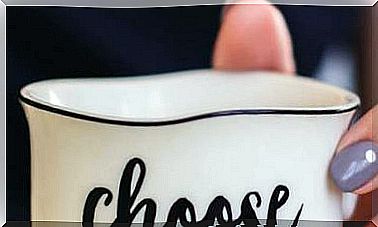Broken Heart Syndrome: The Emotional Causes Of Heart Attack
He cringes; freezes with stupor; it widens with hope … It is already scientific evidence that emotions influence the health of our hearts.

Can you die of love? Or rather, heartbreak? Can you get to die of grief? If we attend to the universal literature of all time, or listen to a song of any subject, dying with a “broken heart” is usually a worrying frequency.
We may even know first-hand the story of someone who has died shortly after losing their loved one because they have not been able to overcome loneliness.
Can you “break” a heart?
But does medical research support these widespread and ancient beliefs? The answer could be yes, as more and more scientific evidence is being found.
Since the 1990s in Japan, and more recently in the United States and Europe, medical researchers have paid attention to the syndrome of transient apical dysfunction or stress-induced cardiomyopathy.
In Japan, this disorder is known as Takotsubo cardiomyopathy, because the heart takes the shape of a vessel that has that name and is used to catch octopuses.
Researchers already distinguish broken heart syndrome from the classic myocardial infarction, with which it used to be confused
For centuries and centuries, the heart has been identified as the seat of feelings. We currently know that the trigger for emotions is the limbic system, located in the central middle zone of our brain. Who, then, is the real culprit of heartbroken death? The heart or the mind?
It has been shown that there is a two-way highway that connects both organs, the brain and the heart. In fact, all emotions involve a more or less intense alteration in blood pressure and cardiovascular function, which more than justifies that the heart continues to be, popularly, the seat of emotions.
But we must not be confused: what can lead to death from a broken heart is basically the brain, the mind.
Brain and emotions
Emotions, according to the most recent discoveries in neuroscience, originate from the stimuli that the instinctive brain provokes in the emotional brain or limbic system.
This means that emotions are actually physiological responses to the onslaught of a basic instinctual impulse.
In the case of negative emotions, these are always accompanied by a significant increase in the levels of adrenaline, and the other stress hormones, in the circulatory stream.
As a consequence, an inflammatory process of the heart takes place which, when the amounts of hormones are excessive or the heart has previous physical deficiencies, can lead to death.
Broken heart syndrome
Dr. Ilan Wittstein, from the prestigious Johns Hopkins Hospital in Baltimore, in the United States, has pointed out the main differences between a classic heart attack and broken heart syndrome.
In fact, according to the data collected by Dr. Wittstein, it is very likely that between 1% and 2% of people who were diagnosed with a heart attack actually suffered an episode of broken heart syndrome.
- This condition has been seen in patients who did not have any cardiac risk factors and who were in good health.
- The concentration of stress hormones present in the blood is double or triple that in cases of heart attack.
- Also, the patterns of electrical impulses and contractions of the heart are very different.
- In broken heart syndrome, if the patient does not die in the attack, normal heart function recovers in a matter of days – or, at most, within a few weeks – while recovery after suffering a heart attack classic can last for a few months.
Triggers
And … what breaks our hearts? Among patients affected by a broken heart, the most varied situations with a strong emotional charge have been evidenced as possible causes:
Going through experiences such as the recent loss of a loved one, having starred in a fatal accident, having been the victim of an armed robbery …;
But also apparently harmless causes such as fear of speaking in public, having been summoned to appear in front of a court or, simply, having the emotional shock of a surprise party.
Ultimately, broken heart syndrome can be caused by any experience that can cause a sudden and excessive overload of adrenaline and stress hormones that damage capillaries and stun the heart muscles.
The influence of personality
The influence of personality on the risk of coronary heart disease also seems quite clear. An optimistic personality is a good coronary protection; On the contrary, a melancholic, angry or irascible personality has twice the risk of suffering a coronary accident.
Being constantly subjected to a stressful situation can also break our hearts. Prolonged fear or strong and persistent depression, or relentless exhaustion from excessive physical or mental effort …
It is becoming more and more evident that the so-called “burn out” syndrome from work or from any situation of exaggerated demand – in English, burn out – must be included in this list , so frequent among executives addicted to work that they do not rest even a minute of his life or in employees subjected to intense harassment and demolition work –mobbing–.
Especially tragic is the case of firefighters who survive the flames and who, subsequently, the stress takes its toll.
Prevention guidelines
Taking care of our emotions means moderating the stress caused by exhaustion, fear, anger, and even grief. Losing a loved one inevitably involves suffering the consequent stress of grief. This loss cannot be assumed in a few hours, but neither should one succumb forever to misfortune. Not to the point of putting your own life at risk.
The best protection against death by “broken heart” is, therefore, the care of the emotions
It is essential not to get carried away by strong negative emotions. To do this, we can resort to mind control and thus prevent stress hormones from overflowing. Whatever the cause of this extreme nervousness, we must resort to anti-stress strategies to reduce it.
Knowing how to distract ourselves with daily occupations, evoke positive thoughts, practice yoga or relaxation techniques … In other words, it is about avoiding emotional kidnapping at all costs, that harmful loop in which an emotion is installed obsessively and permanently, causing stress hormones to accumulate and affect the health of our cardiovascular system.
We know that there are only two points that lead to the exit of an emotional pothole: eliminating the external cause that has originated it – something that can be very complicated in certain cases – or superimposing the control of the rational brain on the emotional brain.
In any case, it is always advisable to resort to preventive measures:
- Blood pressure should be monitored regularly and if any abnormality is noted, seek medical advice without delay.
- We have to react promptly and effectively to any depressive episode, no matter how small and harmless it may seem.
- Go to a psychologist or therapist before the stress level damages our cardiovascular system.
- It is a good idea to rethink our lifestyle if stress starts to creep in.
Fathers, mothers and their inclination to stress
It has been shown that a positive attitude towards stress is transmitted through empathy from parents to children. The mother, in particular, transmits tranquility or nervousness to her baby from the intrauterine phase and the eventual postpartum depression greatly affects the future psychic background of the baby.
Prevention to enjoy a seamless heart then begins in the family environment and from the earliest childhood.
It is important to bear in mind that moods, both positive and negative, are contagious
However, prevention does not imply fleeing from all emotional commitment in order to avoid the pain of being unrequited or being abandoned in the future. There are many people who, probably unconsciously, flee from present pleasure to avoid possible future pain. This option represents living at half gas, and is not a guarantee of good health.
Rebuilding a broken heart
But living with fullness and joy, and developing an optimistic attitude, involves taking risks. And it will be easier to do so if we think that, no matter how solid the protective armor may seem, fate can surprise us with unexpected pain.
If something or someone breaks our heart at a certain moment, it is about knowing how we can rebuild it as soon as possible, counteracting negative emotions with doses of positive emotions.
As popular wisdom says, decanted by centuries of practice, the best way to cover the hole left by a nail is with another nail. Who can blame the abandoned lover for quickly seeking a new love? Who can oppose that parents who have lost a child want to engender another little one in whom to place their love?
It is possible to survive a broken heart, both physically and emotionally. It is about closing that painful chapter of our life to open a new one full of hope. With growing enthusiasm, with the optimism that many good things are waiting for us around the corner.









